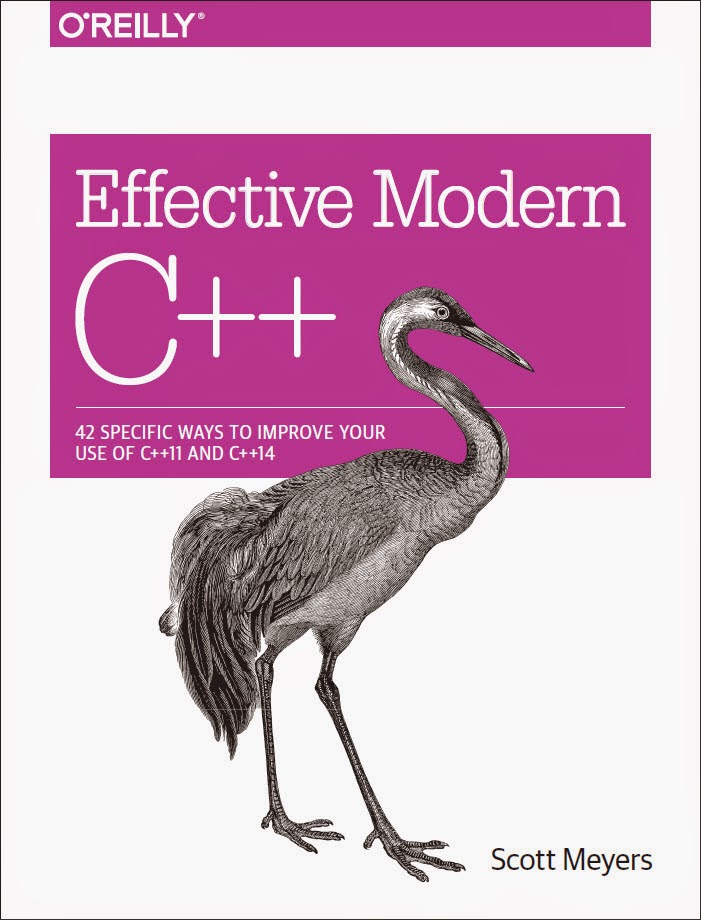Quick Q: Is vector storage contiguous? -- Stack Overflow
Quick A: Yes.
Recently on SO:
std::vector: contiguous data and copy/move
I have two questions for the following code: 1) Will the elements of
facesbe contiguous? 2) Doesstd::vectorcopy or moveFace fwhen inserting it?#include <vector> int main() { struct Face {}; std::vector<Face> faces; for (int i=0; i<10; ++i) { Face f; faces.push_back (f); } return 0; }

 C++ is quietly becoming a language of choice for cross-platform mobile apps, because it's the only modern language that can target iOS, Android, and more with the same source code.
C++ is quietly becoming a language of choice for cross-platform mobile apps, because it's the only modern language that can target iOS, Android, and more with the same source code.
 Scott Meyers' highly anticipated new book Effective Modern C++ is on the way:
Scott Meyers' highly anticipated new book Effective Modern C++ is on the way: More CppCon 2014 accepted talks have just been announced, below. For past announcements about the conference program, see also:
More CppCon 2014 accepted talks have just been announced, below. For past announcements about the conference program, see also: Part 3 of Vadim's experience report about using Boost's graph support in an existing game app:
Part 3 of Vadim's experience report about using Boost's graph support in an existing game app: